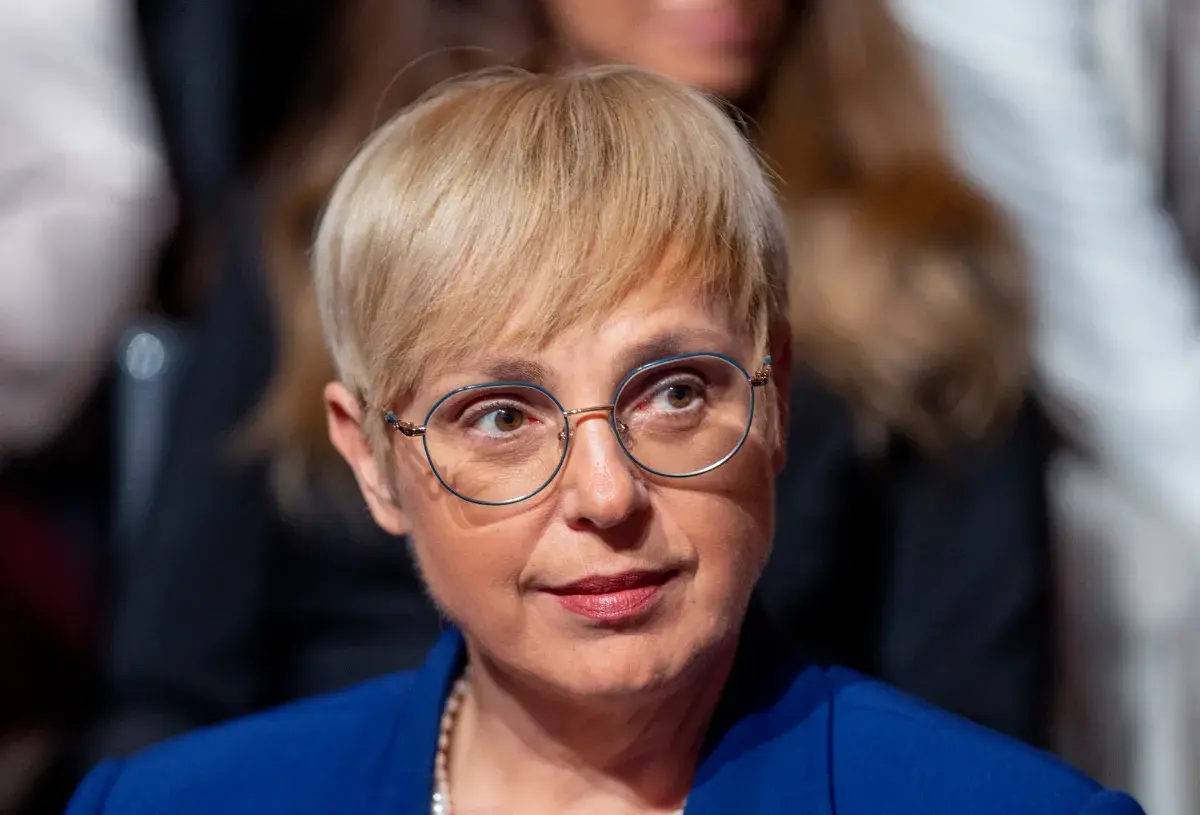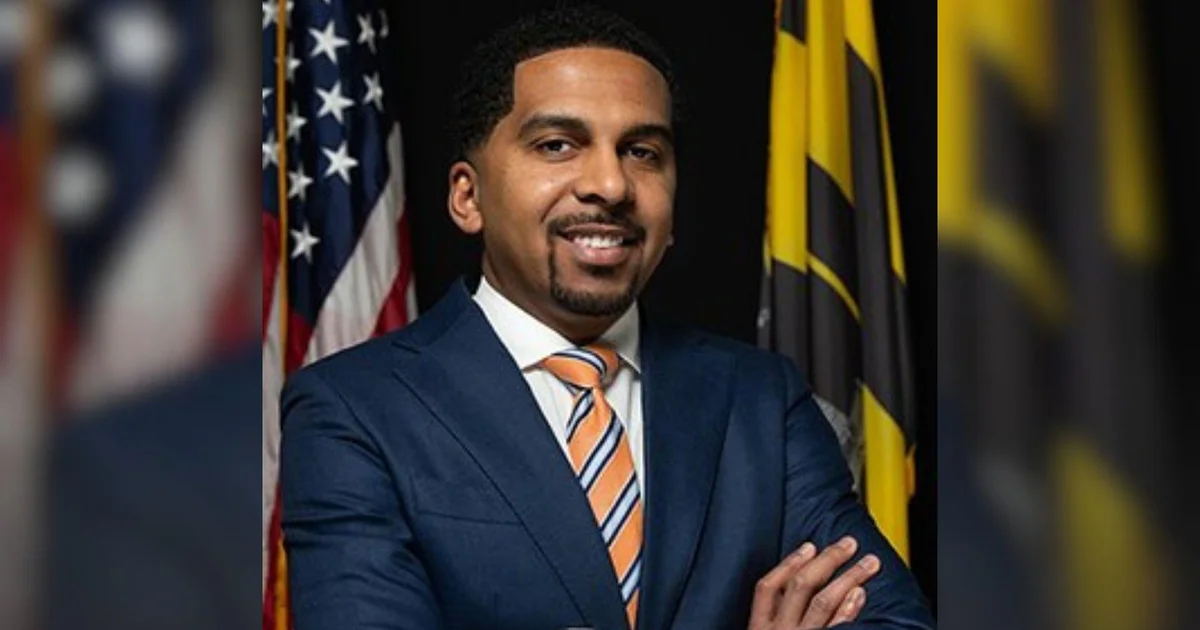Copyright Newsweek

Nataša Pirc Musar holds obvious affection for Melania Trump. When her name comes up while Newsweek speaks to the first lady’s former lawyer in a room in the capital Ljubljana, she grins and chuckles, before remarking that Mrs. Trump still immediately replies to her emails. But Pirc Musar isn’t Melania Trump’s lawyer anymore. Instead, she is approaching the three-year mark of her term as president of Slovenia. Yet some things don’t change. She’s still in touch with the woman who has the ear of the most powerful politician there is—and the first lady hasn’t forgotten her mother tongue, Pirc Musar says with a grin. “I’m really proud of her,” says Pirc Musar, whose law firm handled cases for Melania Trump between 2016 and 2019. “I see her as a lady who’s softening President [Donald] Trump, a bit, sometimes.” Melania Trump hails from Sevnica, a quaint town overlooking the Sava River to the east of the capital. Slovenia itself is a compact nation that joined both the European Union and NATO in 2004, often overlooked in its perched position just north of the Western Balkans and on Italy’s northeastern edge. With a population of scarcely over 2 million—smaller than Houston, Texas—it straddles Central Europe and the Mediterranean with strands of Balkan influence woven in, but is removed from the fraught history former Warsaw Pact nations—like Poland—and the Baltics have with Russia. The country has largely dodged the impact of the White House’s tariff war, doing relatively scant trade with the U.S., while starting to wean itself off Russian products following Moscow’s full-scale invasion of Ukraine in February 2022. The first lady, far more reserved in her public statements than her husband, in August penned a missive to Russian President Vladimir Putin, appealing to him to protect children imperiled by the war with a “stroke of the pen.” Although Melania Trump did not mention Kyiv and Moscow specifically, Ukraine’s president, Volodymyr Zelensky, quickly chimed in that the first lady’s “voice matters.” Melania Trump told reporters in October that eight Ukrainian children had been reunited with their families after she established an “open channel of communication” with the Kremlin chief, who has become a pariah to much of the western world. The note shows she cares, Pirc Musar says, quick to stress that she believes Europe should have “open channels” of dialogue with Russia, not just the U.S. Melania Trump has a “soft power” too—and the ability to disagree with President Trump. “A husband or a wife is the only person who can look into your eyes and sharply say what’s right and wrong,” Pirc Musar says. International Law Violation Melania Trump is not the only tie between Ljubljana and Washington. The U.S. was quick to recognize Slovenia’s independence when its people voted to leave the Socialist Federal Republic of Yugoslavia as the Soviet Union disintegrated in the early 1990s, and a long friendship has remained, Pirc Musar tells Newsweek. However, times have changed. The U.S. and countries like Slovenia may be “natural allies,” Pirc Musar says, but Washington appears to be striding away from its reputation as a beacon for human rights, democracy and promoting international law. Pirc Musar, known for her liberal take and advocacy work, says these values are sewn into her DNA and that true friends can criticize one another when they disagree. And when countries start neglecting international law, she says, “nothing good is at the end of that tunnel.” Several countries, as well as United Nations experts, have accused Israel of violating international law in the two years of its war against Palestinian militants in Gaza. Israel has dismissed allegations it has committed genocide and war crimes in Gaza, often attacking the legitimacy of the global bodies leveling these accusations. The U.S. sanctioned International Criminal Court judges over warrants issued against Israeli leaders, including Slovenian judge Beti Hohler. “You cannot imagine how many difficulties she has,” Pirc Musar says. “This is a huge obstacle, not only for her, but for the whole court.” Pirc Musar, a fierce advocate for the role of the 193-country U.N. that is increasingly criticized as irrelevant, has called for the Security Council to be upended and the veto power held by the five permanent members to be restricted when it comes to genocide and human rights violations. The U.S., U.K., Russia, China and France have veto powers. The U.S. repeatedly vetoed U.N. resolutions that would have demanded an immediate and permanent ceasefire in Gaza from Israel. After a U.S. veto in September, the Palestinian ambassador to the U.N., Riyad Mansour, said the U.S. veto had stopped the Security Council from “playing its rightful role in the face of these atrocities.” The U.N. must remain fit for purpose, including for weighing in on atrocities like genocide, Pirc Musar says. The Trump administration has separately launched several lethal strikes on alleged drug boats in international waters since the start of September, targeting what it describes as “narco- terrorists,” in the midst of a U.S. military buildup in the southern Caribbean. The administration has provided little in the way of evidence to back up its claims that it is homing in on drug cartels. Venezuela, whose contact with the U.S. is strained at the best of times, has hit back at the claims those on board were drug smugglers. Experts and onlookers have questioned with growing concern whether these strikes are legal, and whether military lawyers that the Pentagon has encouraged commanders to ignore had signed off on the operations. On October 8 the Senate blocked a measure that would have stopped the administration using military force against the vessels. It appears the U.S. has strayed from the principles of democracy and obeying international law, Pirc Musar says. “But I really believe that, also, President Trump is smart and wise,” she adds. “He’s trying to solve the puzzle, the wars, sometimes in his own way, but at the end, I do believe he is aware of what’s at stake.” “If they’re going to continue this way, they will have less and less credibility in the international community,” Pirc Musar says. “Do they want this? I don’t want this. To violate international law is the biggest crime a country can do.” “When you lose the credibility, you can lose it really fast—then it takes years to get it back.” Credibility is something Europe needs to take note of, too. The European Union isn’t united, Pirc Musar says, and human rights are “sliding down” the world agenda. Having more than two dozen members on the same page is a tall order; France’s priorities for a Europe less dependent on the U.S. somewhat jars with the desires of the eastern flank. All the while Robert Fico, Slovakia’s prime minister, posed for photos with Putin after traveling to Beijing for what became a show of solidarity between Russia, China and North Korea last month. “This disunity that we are showing among 27 member states is causing a lot of problems,” the president says. “Above all, it’s making Europe weak.” “We are losing—Europe is losing.” Slovenia, the U.S. and NATO Europe has long leaned on the U.S. to provide the lion’s share of the continent’s expensive military capabilities. Defense spending lulled in the wake of the Cold War, and Donald Trump’s triumphant return to the White House has had Europe scrambling to reevaluate its military plans, in the face of an American swivel elsewhere, and work out how to get hold of enough new equipment. Ljubljana still hasn’t met the longstanding NATO benchmark of dedicating 2 percent of GDP on defense, though it is on track to do so this year. Distant from NATO’s eastern flank and the shadow of Russia, like most NATO nations with a geographical buffer between themselves and Russia there is little hint of the anxiety around armed attack that permeates the Baltic region, Poland and some Nordic states. Pirc Musar says the country, formed in 1991 following the Ten-Day War with the Yugoslav People’s Army amid the disintegration of Yugoslavia, is “more sensitive” to the plight of Palestinians than to the war that has chewed up Ukraine. The civilian impact for Palestinians of the war between Israel and Palestinian militant group Hamas lands closer to home for a country that still has fresh memories of the Srebrenica genocide in Bosnia, she says. More than 8,000 men and boys were killed in 1995 in the town of Srebrenica in what the International Court of Justice, the United Nations’ top court, formally recognized as genocide in 2007. A U.N. commission of inquiry report in September accused Israel of committing genocide in Gaza, allegations Israel rejects. Under new targets set out in June, NATO members agreed to spend 3.5 percent of their GDP on military hardware, plus another 1.5 percent on related investment, like infrastructure, in the next decade. This is a huge jump from the less than 1.4 percent Slovenia dedicated to military spending last year—and one Slovenian society may not be ready to take. A stroll around the streets of the capital reveals posters with slogans roughly translating to, “we want 5 percent in beer, not in weapons,” while defense spending remains a thorny issue among the country’s lawmakers. “There was never a question whether Slovenians would like to join the EU,” says Mitja Velikonja, a professor of cultural studies at the University of Ljubljana and author of Ukrainian Vignettes. “But when it comes to NATO, there are much more questions and Slovenians are much more reserved.” Hybrid Threats NATO countries have recently reported numerous drone incursions—some near military sites—and several airport shutdowns. Poland said around 20 Russian drones crossed into the country in September, though Moscow denied responsibility. It marked the first time NATO planes had engaged potential threats in Allied airspace. Drones were also spotted in Germany, but Slovenia has not experienced any airspace violations, Pirc Musar says. Ljubljana has not, though, escaped from the impact of hybrid attacks, tactics designed to be destabilizing. Hybrid assaults can mean anything from cyber campaigns to the spread of misinformation and weaponizing migration. The Slovenian presidential office and the foreign affairs ministry have been targeted, Pirc Musar says. Estonia said three Russian MiG-31s—aircraft that can carry nuclear-capable missiles—violated its airspace for about 12 minutes in September. Moscow denied its jets did so en route to the country’s NATO-surrounded exclave of Kaliningrad. Both Warsaw and Tallinn invoked Article 4 of NATO’s founding treaty in September, meaning member nations come together to discuss “whenever, in the opinion of any of them, the territorial integrity, political independence or security of any of the Parties is threatened.” NATO’s more well-known provision, Article 5, is the idea that nations will support a fellow member under armed attack with a response they deem appropriate. Opinion is split on how NATO should react to Russian aircraft in its airspace. “The biggest challenge for NATO is to keep its nerve” and not shoot down jets testing the alliance, Jean-Paul Paloméros, a retired French Air Force general who served as a senior NATO commander, told Newsweek recently. Donald Trump, along with the head of the EU’s executive arm, Ursula von der Leyen, has kept the door open to attacks on Russian aircraft. “You have to be very careful,” Pirc Musar says. The best response is for NATO aircraft to escort Russian jets from the airspace they’re violating, she says. If they don’t cooperate, she adds, “that’s the decision to be made when something like that happens.” “I’m a pacifist by heart,” she says, adding she would prefer public funds go into education or scientific programs—and expresses a hope “we are not going to become too militant”—with a frank statement that echoes NATO’s rationale that only by having military capabilities, they won’t have to use them. “I wish that politicians would use words, and not guns,” Pirc Musar says.



